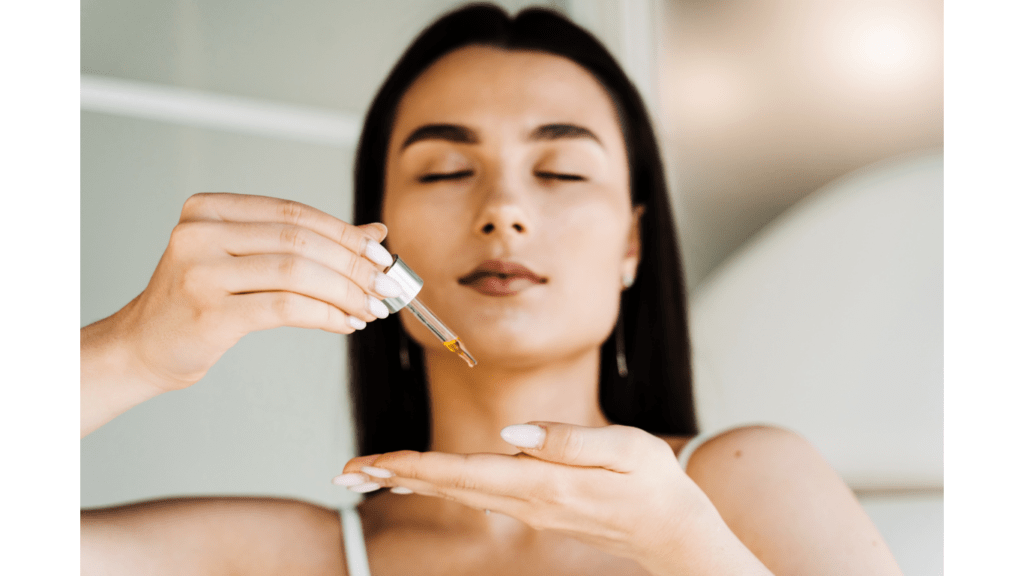The Importance of Knowing Your Skin Type
Identifying the Five Basic Skin Types
Understanding your skin type is crucial for developing a tailored beauty routine. There are five basic skin types: normal, oily, dry, combination, and sensitive. Each type has unique characteristics that affect how it responds to skincare products.
How Skin Type Influences Your Beauty Routine
Your skin type plays a significant role in determining the products and routines that will work best for you. For example, those with oily skin may need oil-free moisturizers and gentle cleansers, while individuals with dry skin should opt for hydrating formulas. Tailoring your beauty routine to your specific skin type can help you achieve healthier and more radiant skin.
Skin Deep: Tailoring Your Beauty Routine
Cleansing Techniques for Each Skin Type
- When it comes to cleansing, I always emphasize the importance of choosing the right products based on your skin type. For those with normal skin, a gentle cleanser that maintains the skin’s balance is ideal. If you have oily skin like mine, opt for foaming or gel-based cleansers to help control excess oil. Individuals with dry skin should go for hydrating or creamy cleansers to prevent further dryness. For combination skin, a mild cleanser that targets both oily and dry areas is the best choice. Those with sensitive skin, like my own, should opt for fragrance-free and hypoallergenic cleansers to avoid irritation.
Moisturizing: Finding the Right Balance
- Moisturizing is key to a healthy skincare routine for all skin types. For normal skin, a lightweight moisturizer will suffice. I’ve learned that for oily skin, it’s essential to use oil-free or non-comedogenic moisturizers to avoid clogged pores. Dry skin, on the other hand, requires rich and emollient moisturizers to deeply hydrate the skin. Individuals with combination skin should consider using different moisturizers for oily and dry areas to balance the skin effectively. As someone with sensitive skin, I opt for gentle and calming moisturizers to soothe any redness or irritation.
Exfoliation and Treatment Specifics

Choosing Exfoliators for Sensitive Skin
- When it comes to exfoliation for sensitive skin like mine, gentle is key. Harsh exfoliants can irritate and inflame sensitive skin, leading to redness and discomfort. Opting for exfoliators with fine particles or chemical exfoliants like glycolic acid can effectively remove dead skin cells without causing undue stress. It’s crucial to perform a patch test before full-face application to ensure compatibility and minimize the risk of adverse reactions.
Treatment Serums: Customizing for Your Skin’s Needs
- Customizing treatment serums to address my skin’s specific concerns has been a game-changer. By targeting issues such as dryness, acne, or aging, these potent formulas can deliver concentrated ingredients tailored to what my skin needs most. Whether it’s hyaluronic acid for hydration, salicylic acid for acne-prone areas, or antioxidants for anti-aging benefits, incorporating the right treatment serum into my routine can enhance the overall effectiveness of my skincare regimen.
When to Seek Professional Skin Analysis
The Role of Dermatologists in Skin Care
- When it comes to maintaining optimal skin health, it’s essential to recognize the expertise that dermatologists bring to the table. Dermatologists are specialists in diagnosing and treating a wide range of skin conditions. If you’re struggling with persistent skin issues or aren’t sure about your skin type, consulting a dermatologist can provide valuable insights. They can conduct thorough analyses to identify your specific skin type and any underlying concerns that may be affecting its health.
Advanced Skin Analysis Technologies
- In today’s advanced skincare landscape, cutting-edge technologies play a significant role in diagnosing skin conditions with precision. From tools that measure hydration levels to devices that assess skin elasticity, these technologies offer detailed insights into your skin’s unique needs. When seeking professional skin analysis, dermatologists may utilize these advanced technologies to create personalized treatment plans tailored to your skin type. Embracing these technological advancements can lead to more targeted skincare routines that address your skin concerns effectively.
Adapting Your Routine for Changing Skin Needs
Seasonal Adjustments in Skincare
Seasons play a significant role in how our skin behaves. As the weather changes, so do our skin’s needs. In winter, the skin tends to become drier due to the cold air and indoor heating. During this season, I adjust my skincare routine by incorporating richer moisturizers to combat dryness and dehydration. It’s essential to hydrate the skin adequately to maintain its health and suppleness. In contrast, summer brings more humidity and increased oil production, requiring lighter formulas and possibly mattifying products to control shine. Adapting my routine to the seasons ensures that my skin remains balanced and healthy year-round.
Age-Related Skin Changes
As we age, our skin undergoes various changes that necessitate adjustments to our beauty routines. Skin becomes thinner, loses elasticity, and may develop fine lines and wrinkles. In my experience, I’ve found that focusing on hydration and incorporating anti-aging ingredients such as retinol can help address these concerns. It’s crucial to choose products that nourish the skin and promote collagen production to maintain its youthful appearance. Additionally, protecting the skin from sun damage through daily sunscreen use is essential in preventing premature aging. By adapting my skincare routine to address age-related changes, I can effectively target specific concerns and maintain healthy, radiant skin.


